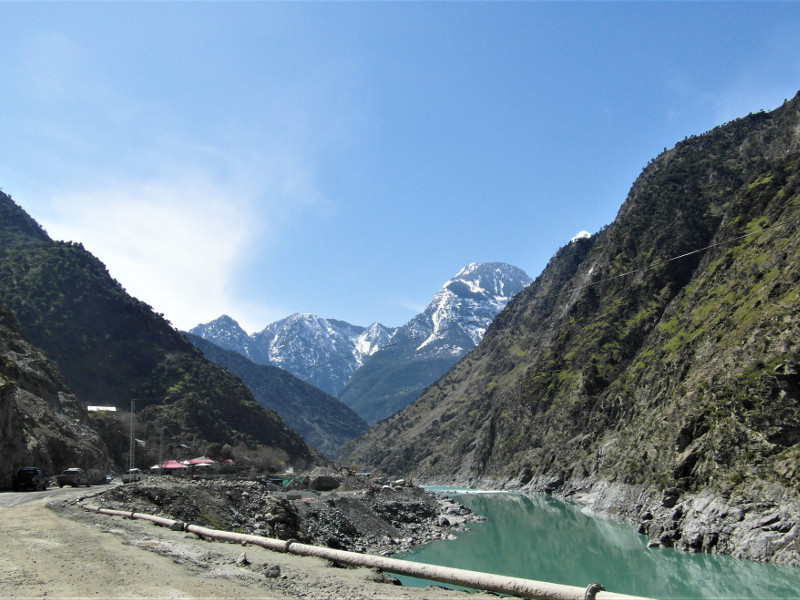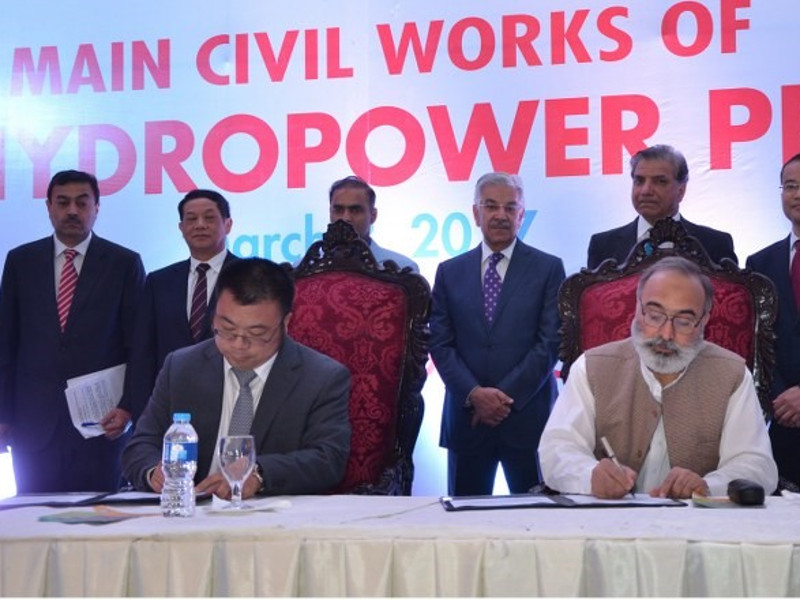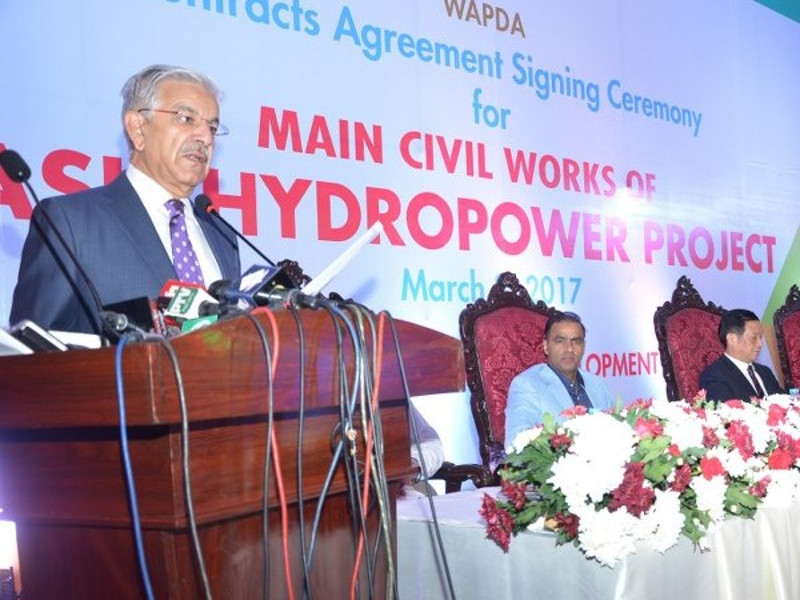The Dasu hydropower project (HPP) is a 4.32GW run-of-the-river hydroelectric power facility planned to be developed in two stages on the Indus River, approximately 7km upstream of the Dasu town, Kohistan, Khyber Pakhtunkhwa, Pakistan.
Pakistan’s Water and Power Development Authority (WAPDA) is the implementing authority of the project.
Early construction works on the Dasu hydropower project stage one were started in June 2017. Estimated to cost $4.2bn, the stage one will comprise six generating units with a combined installed capacity of 2.16GW.
Scheduled for commissioning in 2023, the Dasu stage one is expected to generate approximately 12,222GWh of clean electricity a year. It is estimated to generate more than 8,000 jobs for the local residents.
Project Gallery
-

Dasu hydropower project is located on the Indus River in Kohistan, Khyber Pakhtunkhwa, Pakistan. Image courtesy of Tractebel.
-

China Gezhouba Group Company (CGGC) was awarded the main civil work contracts for the Dasu project in March 2017. Image courtesy of WAPDA.
-

The Dasu hydropower project stage one is estimated to cost $4.2bn. Image courtesy of WAPDA.
WAPDA plans to initiate the Dasu hydropower plant stage two with a similar installed capacity after the completion of the Diamer Basha project, which is currently under construction on the River Indus in Gilgit-Baltistan.
Upon completion of both the stages, Dasu will be one of the biggest hydroelectric facilities in South Asia.
Dasu hydropower project background
WAPDA initiated studies on the hydropower development potential of the Upper Indus Basin area in Pakistan in the 1980s. The Dasu HPP proposal was approved under the Government of Pakistan’s Vision 2025 program in 2001.
Feasibility study on the project was completed in 2009, while contracts for preparatory works of the project were awarded in the first half of 2015.
Dasu hydropower project location and site details
The Dasu hydropower project site is situated in a deep and narrow valley of the lower Himalayas at an altitude of 800m above sea level (MASL).
Located in the remote mountainous terrain in the Upper Indus valley, the site will be accessed through the realignment of a 65km stretch of the Karakoram Highway (N-35).
Dasu hydropower facility make-up
The Dasu hydropower facility will comprise a 242m-tall roller compacted concrete (RCC) with 570m crest length, eight spillway gates, two flushing tunnels, four circular headrace tunnels, an underground power house on the left bank of the river, four 2.2km-long tailrace tunnels, and a switchyard.
The RCC dam will create a 73km-long and 733m-wide reservoir with a gross storage capacity of 1.4 billion cubic metres (bcm). The maximum gross head for the hydroelectric facility will be 184m.
The underground power house will be equipped with six 360MW vertical shaft Francis turbine generator units in each stage of the project development.
Power transmission
The electricity generated by the Dasu hydropower station will be fed into the national grid through two parallel 250km-long, 500kV transmission lines connecting the Pathar Garh grid station near Hassanabad.
Pakistan’s state-owned National Transmission and Dispatch Company (NTDC) will be responsible for the development and operation of the transmission infrastructure for the project.
Financing
The World Bank approved an International Development Association (IDA) credit of $588.4m and an IDA Partial Credit Guarantee (PCG) of $460m for the Dasu hydropower project stage one in June 2014.
WAPDA secured PKR144bn ($1.36bn) financing for the project from a consortium of seven local commercial banks led by Habib Bank (HBL) in March 2017.
Further, Credit Suisse Bank agreed to provide a $350m debt facility for the project in June 2017. The remaining funds will be provided by WAPDA and the Government of Pakistan.
Contractors involved
China Civil Engineering Construction Corporation (CCECC) was awarded contracts worth $170m for the preparatory works of the project in March 2015.
Power China was awarded a $17m contract for a 45km-long, 132kV transmission line from the Dubair HPP to the Dasu project site in April 2015.
The main civil works contracts worth PKR180bn ($1.7bn) were awarded to China Gezhouba Group Company (CGGC) in March 2017. The scope of the contracts includes construction of the dam, the underground power complex, and associated structures.
CGGC subcontracted Beifang Investigation, Design & Research for providing design and technical services in May 2017.
Zhongmei Engineering Group received two contracts worth $22m for resettlement works related to the Dasu hydropower project in April 2017.
China Gansu International Corporation for Economic and Technical Cooperation (CGICOP) was awarded a $46m contract for the construction of accommodation and support infrastructure facilities for the project in October 2018.
Tractebel was awarded the project monitoring consultancy services contract for the Dasu hydropower project in May 2019.
